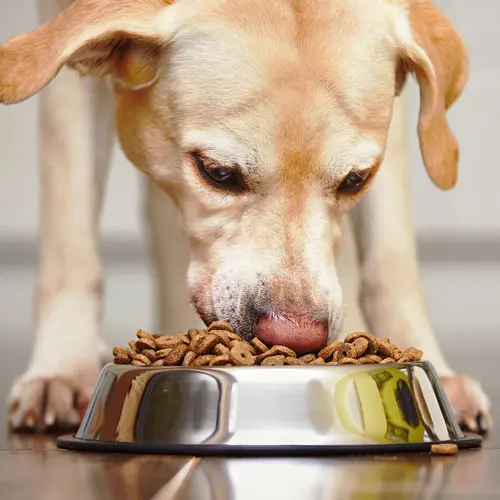Dog owners are used to heavy breathing and a lot of sniffing from their furry companions. Dogs use their sensitive noses to understand the world around them. Snorting, sneezing, and panting are all business as usual for dogs.
Sometimes, dogs start inhaling in quick, jerky spasms that look like gasps. They stretch their necks out and inhale sharply over and over again. This alarming behavior is much less dangerous than it looks, though. It's called reverse sneezing, and it's usually no more concerning than regular sneezing in dogs.
What Is Reverse Sneezing in Dogs?
A reverse sneeze is exactly what the name suggests. It's a sudden spasm that leads the dog to have short, rapid bursts of nasal breathing. Unlike a regular sneeze, the dog isn't expelling air out of the nose. Instead, the dog sucks air into their nostrils. It's like the dog is sneezing backward and taking air into their nasal passages instead of pushing it out.
When a dog has an episode of reverse sneezing, they will stand still, extend their head and neck and start inhaling in short, noisy gasps. This can sound like snorting or choking. The spasms that cause reverse sneezing can last anywhere from a few seconds to a minute. Once the episode is over, the dog will typically take a deep breath, and then their breathing and normal behavior will return to normal again.
What Causes Reverse Sneezing in Dogs?
Experts aren't certain what causes a dog's reverse sneeze. Not all dogs experience the phenomenon. It seems to be more common in dogs with longer snouts.
Some dog experts believe that dogs reverse sneeze as a way to clear irritants from the back of their throat or sinuses. Common particles in the air such as dust, pollen, or even smoke can get into the sensitive tissue in a dog's mouth and nose. That may trigger spasms of reverse sneezing as a way to clear out the irritating material. It's not usually serious and it isn't contagious, so your other pets won't be affected.
Asthma and allergies can lead to frequent reverse sneezing, as well. Your vet may suggest allergy testing to find out what is triggering the episodes. Some dogs are sensitive to artificial fragrances, household cleaners, dust mites, or pollen. Removing allergens and treating symptoms with allergy medicine may help your dog avoid reverse sneezing.
Is There Treatment for Reverse Sneezing in Dogs?
In most cases, dogs don't need treatment for reverse sneezing. The episodes are short, and dogs don't have any ill effects after they stop experiencing the rapid gasps of reverse sneezes. There aren't any known long-term effects of reverse sneezing.
Concerned dog owners often want to know how to stop reverse sneezing in dogs since it looks scary and uncomfortable for their pets. There are a few techniques you can try to relieve the symptoms, including:
- Gently blowing in your dog's face
- Briefly covering and uncovering their nostrils
- Gently petting the dog or softly rubbing their neck to keep them calm and encourage swallowing
- Bringing the dog into fresher air
Most of the remedies for an attack of reverse sneezing help by encouraging the dog to swallow. The combination of sharp inhalations and natural swallowing can clear out the irritants in the dog's throat. You may want to offer your dog some water after they finish reverse sneezing to soothe any remaining irritation.
What If My Dog’s Reverse Sneezing Increases?
If your dog is having a sudden increase in reverse sneezing episodes or if they have other breathing issues, you should talk to your vet. They might have another health condition that's causing throat and sinus irritation, such as:
- Collapsing trachea
- Foreign bodies in the nasal passages or mouth
- Nasal growths such as polyps or tumors
- Upper respiratory tract infection
If your dog has any underlying health problems, your vet will help you decide what the best course of treatment is. A respiratory infection may require antibiotics or other medicine. Problems with your dog's nasal passages or throat might need surgery.
Seeing a Vet for Reverse Sneezing in Dogs
If you are concerned about your dog's breathing, you can make an appointment with a veterinarian to discuss the issues they've been having. You might try to capture an incident of reverse sneezing on video so you can show it to the vet. That will be more helpful than trying to trigger an episode in the office.
Most dogs recover from the occasional bout of reverse sneezing and don't need any treatment. You can help by keeping your home as dust and irritant-free as possible and making sure your pet has access to fresh air and clean water.


